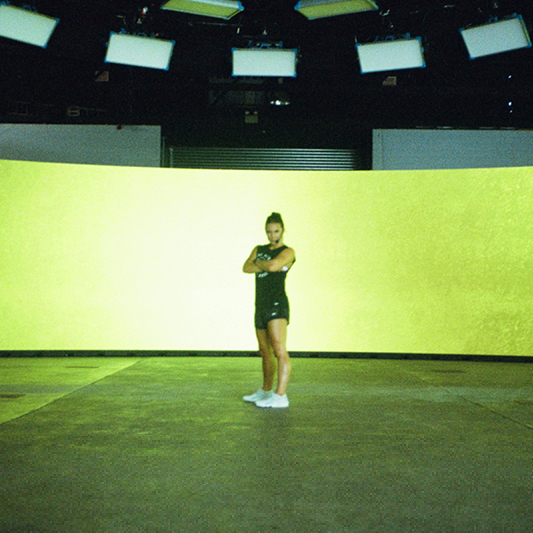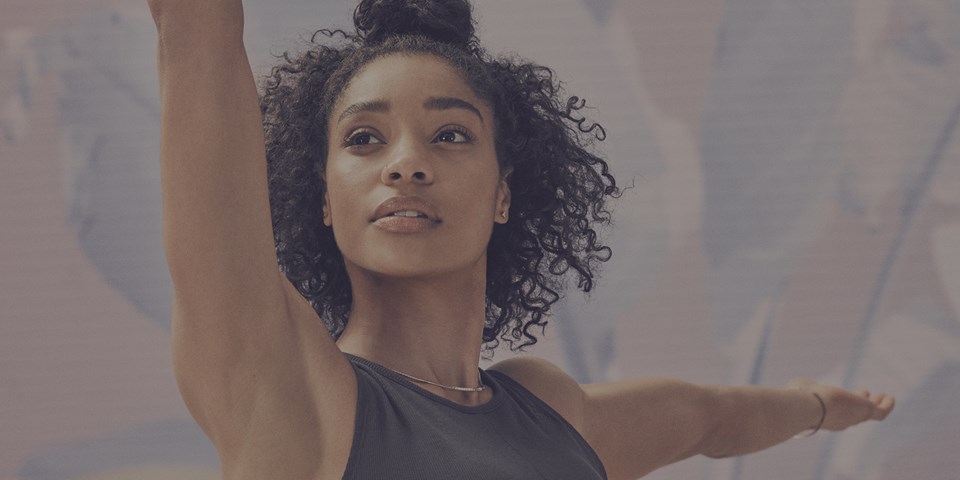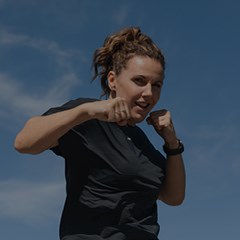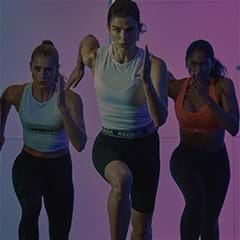Question: If 'we are what we eat’, then are we also what we think?
Imagine a world where when we look at each other we see everything we've eaten in the last 24 hours and a dossier of every thought we’ve had. WOW, that’s a scary thought, isn’t it? But which is scarier … people knowing what you’d eaten, or what you’d been thinking?
For me, the greater concern would be what I’d been thinking. After all, we all shop at the same supermarkets for food and see one another's trolleys. We're all basically eating the same food, so no surprises there. There are no real consequences or judgments at stake.
Our thoughts, on the other hand, can’t be bought from the same generic stores. They are built in the darkness of our own minds. They're certainly not on public display! Hence my concern would be for people to know all the thoughts I’ve had about myself. The self-doubt. The bad self-talk. The dwelling. The concerns around societal structures and milestones I’m yet to achieve. The paranoia. The fear. The shame. All these thoughts are had by every human at some stage of life. They are inescapable. However, they are stigmatized and we are judged by them. They are the LAST thing I’d want anyone to see.
On a side note, how funny is it when you bump into someone from the gym at the supermarket and they have a good nosy at the contents of your trolley, haha! I can hear some of you screaming: "It’s not even funny Rach, it’s annoying because I don’t want anyone to see my jar(s) of Nutella!" and I’d absolutely agree with you!
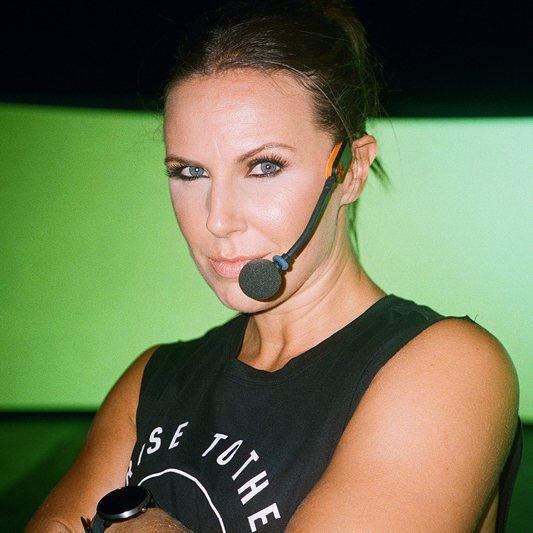
Let me first address the food part. Personally, I’m not worried about this because I know I eat relatively well. How do I know this? My body is a product of what I eat. It’s been fully energized for a while now and it copes well with all the exercise I ask of it. For those wanting context: the food we consume daily is turned into fuel by our amazing biology that helps build our cells and our body.
Now for the LOLs as I honor my ethos of 'keeping it real'…
Based on today's consumption, I am made mainly of black coffee and full-fat cream, sunflower seeds, raisins and almonds (it’s still Monday morning). However, I’m smart enough to know today's body was built in yesterday's kitchen. So that makes me also part cheese and crackers, red wine, chips (crisps for the Brits), smoked mackerel and avocado on toast, apple, peanut butter and Greek yogurt.
This then leaves me with the latter part of my opening statement: we are what we think.
Is it time to do an inventory of what thoughts I've had? Yes, great idea Rach! Like a food diary? But instead of focusing on calorie deficit (like many PTs recommend), I attempt the same thing with my thoughts to check if I'm in the positive or negative.
If I look at my thoughts like a food diary – and classify them metaphorically as high-grade nutrition right down to low-grade nutrition – I can see that very few will enrich my day.
What thoughts have you had today, Rach? Today I had many thoughts:
- What to write this article about and whether anyone really cares about mental health.
- If I had the mental energy today to write from a strong place, or should I wait because I was in a funk – because today it was announced that Auckland will remain in lockdown for at least two more weeks, so we cannot pass go and collect a get-out-of-lockdown free card like the rest of the country.
- Why is 'Zoom' called zoom? It insinuates we're going somewhere fast, when we actually go nowhere and sit still
- How the heck is it my birthday in a few weeks? Didn’t we just get out of lockdown last year during my birthday week?
- Have I really grown as a person since last year as I hoped to? And when the heck is Cupid going to see my match and let me in on the plot twist? I hope it’s before next year's birthday!
- I wonder who signed off on calling the app Blue Jeans and how much they got paid? Do they live in Bali? And why am I so triggered by this? Hahaha!
- Was it really the Greeks that made the yogurt, or is this a marketing plot?
(When you read these random thoughts please go easy on me. This is being written in New Zealand’s hardest lockdown and I self-isolate 24/7 because I live solo. During a regular Monday, I’d be much busier and have far less time to be so super random. Lol!)
If I look at my thoughts like a food diary – and classify them metaphorically as high-grade nutrition right down to low-grade nutrition – I can see that very few will enrich my day. There weren’t many action points or goals that added value or delivered a sense of accomplishment.
(Aside from the fact that I hope this article helps you see mental health and its mysterious ways in a fresh light – which will definitely be an achievement – I’m also hoping you have used your common sense to deduct that I had way more thoughts than just the above!)
There is a definite 'positive thought' deficit! Great: now I can work on this.
So, do I need to 'upgrade' my thoughts? If I am what I eat, and I am what I think, should I be more conscious of my thoughts and choose them better? Is that even possible?!
Thoughts don’t exactly get an invitation for a certain day or time. They mainly just show up uninvited. Like Delta (she was very uninvited!)

THE SCIENCE BEHIND THINKING
Here’s the science bit to put all this into context. Fun fact: the brain processes over 400 million bits of information every second, but only 2,000-ish bits can be processed consciously. To help us with this overload, we have the RAS (Reticular Activation System).
The RAS is located in the mammalian brain and functions as a network of neurons and neural fibers running through the brain stem. It works as a kind of a sorting office for incoming information, working to prioritize what information we need to know at different times. It's where our thoughts, internal feelings and outside influences meet. I learned about this after reading the book The Answer, by Allan and Barbara Pease, and have paraphrased it for ease of understanding.
400 million bits of information is a LOT, right? That puts a whole new spin on multi-tasking. Thank goodness for my RAS! I don’t think… Wait a second! Hahaha the irony of writing ‘I don’t think’ now has me thinking! Hahaha.
Thinking occurs without us actually having to do anything; it just happens. So consciously choosing thoughts amongst all that ‘thinking’ and information flying around takes some real practice.
I’m no stranger to choosing my thoughts. I’ve been doing this for several years. My first real memory of learning how to choose my thoughts was early on in adult life when stuff didn’t go the way I hoped it would. Then, fear dominated my decision-making. While I knew, rationally, it was wrong to be afraid, the fear held all the power as I hadn’t got the strength of mind yet to know that I could choose love over fear. Finding my voice was an act of self-love I discovered only after I had been blind to its importance for years.
I learned to choose my thoughts when I realized I wanted to control the outcome, rather than allowing fear to control my thinking and behavior.
I learned to choose my thoughts when I realized I wanted to control the outcome.
As simple as this sounds, it’s a constant choice we can make in the awareness continuum. I call it the 'awareness continuum' because I often don’t notice I've drifted into an unhelpful thought pattern. At some point, I hope that I snap out of that thought pattern by becoming aware that I am having it. This is the moment along the awareness continuum that I realize that my mind has defaulted to putting that same 'movie' on, and I consciously 'push stop' on the player. At that point, I select a new movie (thought), push play, and repeat these steps until the unhelpful thoughts drift away.
An example would be reflecting on a past event in my mind's eye, for the tenth time; knowing that re-watching the movie won't change anything, but subconsciously searching for either a clue I missed that will help me feel better about the outcome, or to discover another path I could have taken had I done things differently.
Replaying this movie is now no longer helpful. I can’t change the past. That’s physics. There's no time travel. It’s the tenth time I’ve watched this scene. I’m just watching a movie I’ve already decided I don’t like and making myself feel rubbish, for what? Exactly.
So, in this instance, when watching a metaphorical 'bad' movie in my mind, I feel bad within myself. Conversely, when I play a 'good' movie in my mind of a hilarious moment, I feel good. In my experience, I can disrupt the way I feel in the short term by disrupting my thoughts and choosing different ones.
I can disrupt the way I feel in the short term by disrupting my thoughts and choosing different ones.
In any one moment, I am processing 400 million bits of information. Damn, that’s good! Right?! To interrupt that process I have to shout pretty loud. A whisper won’t cut through that noise. I have to use my big girl voice and speak up. It takes a bit of practice but eventually that voice is heard and has a permanent seat at the management table in my mind.
HOW TO STAY ON TOP WITH HEALTH AND BALANCED THINKING
In my opinion, the best way of keeping things in order is a bit of mental maintenance and filing and, for once, less recycling (of thoughts that is)!
A clean-up of unwanted thoughts, reflections, considerations, and over-played scenarios is all part and parcel of taking the lead in your life. Send them to the metaphorical bin and keep using that internal disruptive voice.
If my imaginary scenario ever becomes a reality, where our every meal and thought is visible to the world, anyone who has practiced this conscious selection of thoughts (and passed their home economics lesson at school) should be well equipped to face the world.
I believe we are what we eat, and I also believe we are what we think. Therefore, I’m focusing on eating healthy and balanced meals, as well as thinking healthy and balanced thoughts.
Leading from a place of conscious choice has been super empowering for me as an adult. Choosing love over fear has served me so well throughout my life. It’s most definitely my GPS: Greater Purpose Statement.
I believe we are what we eat, and I also believe we are what we think. Therefore, I’m focusing on eating healthy and balanced meals, as well as thinking healthy and balanced thoughts.
This article originally appeared at www.lesmills.com/instructors/instructor-news/rachael-newshams-mental-health-journey/




